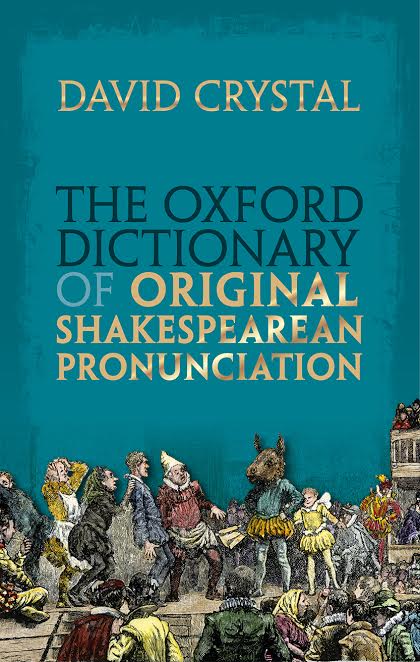Shakespeare rhymes ‘war’ with ‘jar’, ‘scar’, ‘afar’, and ‘bar’ in various plays and poems. Never does he rhyme it with ‘more’. That, of course, is because pronunciation changes continually (listen to 1940s radio broadcasts for evidence if you need it) and Shakespeare has been dead for 400 years. And, obviously, it was far from fixed even while he was writing. Only one third of the154 sonnets rhyme perfectly in modern English according to David Crystal. In eighteen of them it’s the final couplet (‘prove’ and ‘love’ in Sonnet 154, for example) which fails.
Understanding and application of original pronunciation is a fascinating “artistic-scientific” endeavour. It ranges across meaning, puns and other jokes and the use of accents. In Henry V, for instance, it is clearly indicated phonetically that Fluellen is speaking with a Welsh accent and Katherine with a French one. At a time when there’s a lot of interest in original staging – and Shakespeare’s Globe, authentic as it is, teaches actors, directors, students and academics much about that – there is now also a focus on original pronunciation or OP as a way of understanding the plays better.
This very thorough book, which has taken ten years to complete, includes all the words in the First Folio of 1623. Buyers of it have free personal access to the online sound files resource too. That, I must admit, is rather easier to use than the International Phonetic Alphabet (ITA) which Crystal uses throughout his dictionary to indicate pronunciation. Not all teachers – like actors, directors and drama students – will be fully au fait with ITA any more than I am but it all makes sense when you can hear it. I would have found this book useful when I was teaching A Level English Language and Literature and I think it could help anyone teaching or staging Shakespeare in schools.



